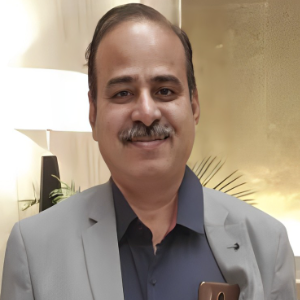Skin cancer is one of the most common types of cancer and can range from mild to life-threatening. Skin cancer occurs when abnormal cells in the skin divide and grow uncontrollably. It is the most common form of cancer in the U.S., with more than 3.5 million cases diagnosed each year. There are several types of skin cancer, including melanoma, basal cell carcinoma, and squamous cell carcinoma. All three types arise from the epidermis, the outermost layer of skin. Melanoma, the most deadly form of skin cancer, is typically caused by overexposure to the sun’s ultraviolet (UV) rays or ultraviolet radiation from tanning beds, and forms when melanocytes, the cells that produce the pigment melanin, become cancerous. Basal cell carcinoma typically arises in areas of the skin that are frequently exposed to the sun and is typically slow-growing and rarely spreads to other parts of the body. Squamous cell carcinoma is less common than other forms of skin cancer, and typically appears as a scaly, red patch, often on the arms, legs, ears, and face. Early detection is key in treating skin cancer. Dermatologists often recommend monthly self-examinations and regular dermatologist appointments to look for changes in skin color or any new or suspicious lesions. If skin cancer is detected early, it is usually treatable. Treatment options may include topical medications, excisional surgery, radiation therapy, or phototherapy. Prevention is also important when it comes to skin cancer. The American Academy of Dermatology recommends that people protect their skin from the sun, wear sunscreen with at least an SPF of 30, and seek shade when the sun’s rays are at their strongest. Regular use of these measures can dramatically reduce the risk of developing skin cancer.

Ravi M Rathod
KMCRI, India
Dechelette Corinne
La Peau Autrement, France
Irina Sergeeva
Novosibirsk State University, Russian Federation
George Sulamanidze
Plastic Surgeon at Clinic of Plastic and Aesthetic Surgery and Cosmetology TOTALCharm, Georgia
Nino Tsamalaidze
Ltd Karabadini+, Georgia
Lina Petrossian
California University of Science and Medicine, United States
Surajbala Khuraijam
Manipur Health Services, India
Shrutimita Pokhariyal
Symbio, India
Yasser Mohammed Hassanain Elsayed
Egyptian Ministry of Health, Egypt



Title : Paraneoplastic Autoimmune Multiorgan Syndrome or PAMS: Paraneoplastic pemphigus revisited
Sergei A Grando, University of California Irvine, United States
Title : Modern non-invasive methods for in vivo assessment of skin
Georgios N Stamatas, SGS, France
Title : Personalized and precision dermatology through the view of biodesign-inspired translational & data-driven applications: Revolutionary skin treatments for every concern in clinical dermatology integrating skin care experts and consumers
Sergey Suchkov, N.D. Zelinskii Institute for Organic Chemistry of the Russian Academy of Sciences, Russian Federation
Title : The next generation of threads: Lifting, volumization, and biostimulation in one powerful triple action
George Sulamanidze, Plastic Surgeon at Clinic of Plastic and Aesthetic Surgery and Cosmetology TOTALCharm, Georgia
Title : Lymphoproliferative diseases in the practice of a dermatologist
Irina Sergeeva, Novosibirsk State University, Russian Federation
Title : Art, skin, and dermatology: Interdisciplinary perspectives
Dechelette Corinne, La Peau Autrement, France
Title : Comparative efficacy of omalizumab and dupilumab in children with Chronic Spontaneous Urticaria (CSU): A retrospective cohort analysis
Molynna Nguyen, University of Toledo, United States
Title : "Mirror mirror on the skin” — A low-cost community strategy to reduce melanoma disparities in Washington, D.C.
Kayla Sampson, Georgetown University School of Medicine, United States
Title : Vitiligo: Not just an aesthetic disorder
Mateja Starbek Zorko, University Medical centre Ljubljana, Slovenia
Title : Personalized and Precision Medicine as a unique avenue to have the healthcare model renewed to secure the national biosafety: Advanced skincare solutions in individualized cosmetology, reconstructive plastic surgery and the modern beauty
Sergey Suchkov, N.D. Zelinskii Institute for Organic Chemistry of the Russian Academy of Sciences, Russian Federation